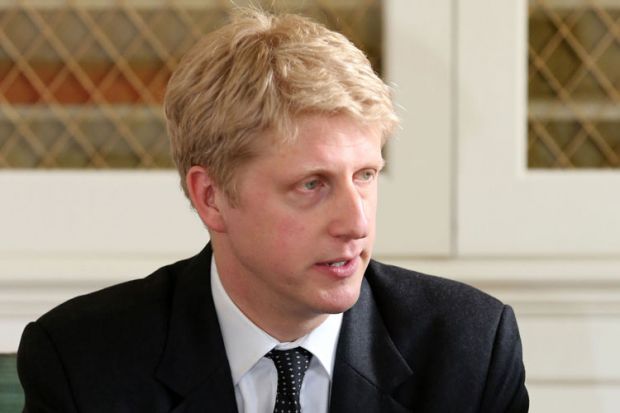Take part in the 2016 THE Best University Workplace survey
Only one in five university staff support the introduction of new measures to assess and improve teaching quality, preliminary results from Times Higher Education’s Best University Workplace Survey indicate.
Of the first 2,000 people to complete our 2016 survey, which is still open to all university employees, just 20 per cent agreed with the statement that “a teaching excellence framework (TEF) is needed to improve teaching quality at my institution”.
About one-third of staff (32 per cent) rejected the notion that there was a need to implement the policy, which under plans fleshed out last week in the government’s higher education Green Paper, will allow those universities deemed to offer high-quality teaching to raise their tuition fees.
A large proportion of staff – 45 per cent – remain undecided about the TEF, saying they neither agreed nor disagreed with the policy championed by universities and science minister Jo Johnson.
Many respondents voiced fears that a TEF would lead to more managerial interference in classrooms.
“Teaching and learning policies have already become increasingly onerous, overbearing, and distrustful of the abilities and autonomy of staff with every passing year,” said one academic.
“These policies discourage innovation and the development of new modules/courses,” he added.
Another lecturer worried about her institution’s desire to “chase the National Student Survey”, rather than improve teaching quality, while another commented that “it’s not the students that matter it’s the NSS…results” – concerns that may deepen if such scores are linked to future fee uplifts.
However, many university employees appeared to support the TEF’s aim to “build a culture where teaching has equal status with research, with great teachers enjoying the same professional recognition and opportunities for career and pay progression as great researchers”.
“There is too much emphasis on research at the expense of teaching,” said one lecturer, whose criticism was echoed by many respondents.
“One-size-fits-all approach to staff means teaching and professional qualifications are undervalued compared to research, even the weakest and least impressive kind,” explained another university employee.
One lecturer complained that his university “has decided to go all-out for research…[which] only has a negative impact on students and on teaching”.
Another summed up the problem succinctly, saying: “Research is rewarded, teaching is not.”
An academic who complained about “too much emphasis on research”, stated that “a ‘TEF’ should ensure teaching is given equal weight and that those who teach are suitably qualified and able to do so”.
However, some university staff warned that a narrative that saw teaching pitted against research missed a fundamental truth about university teaching.
“One constantly hears the 'research-led teaching' mantra [but] there is ever less support and funding for research, time for writing, and funding for dissemination (conferences, workshops, seminars),” the academic wrote.
“The inspiring and innovative teaching that follows from groundbreaking research will soon be a thing of the past if new research is not supported,” he added.
Take part in the Times Higher Education Best University Workplace Survey 2016
后记
Print headline: Lukewarm support for TEF from sector employees, survey shows




